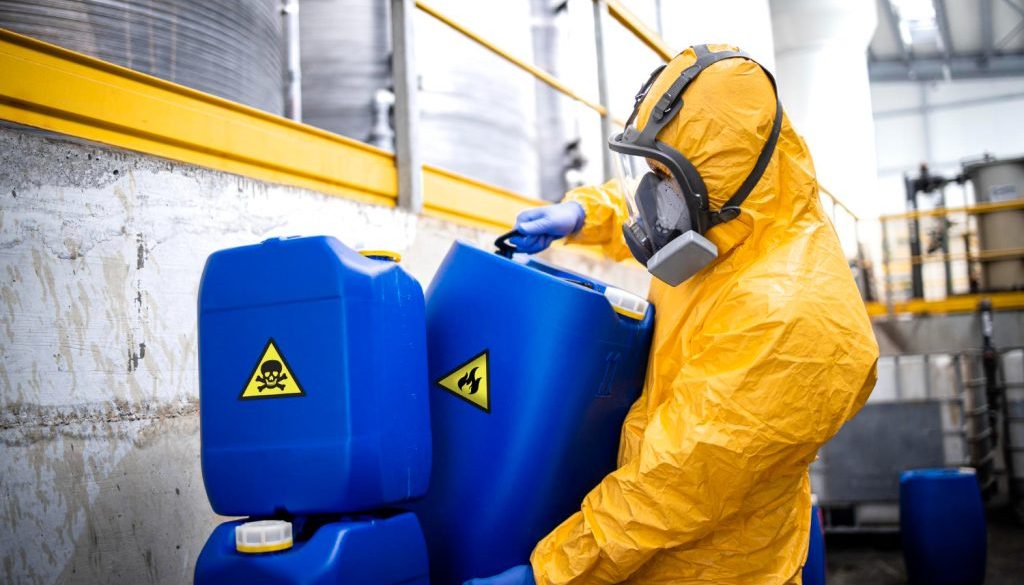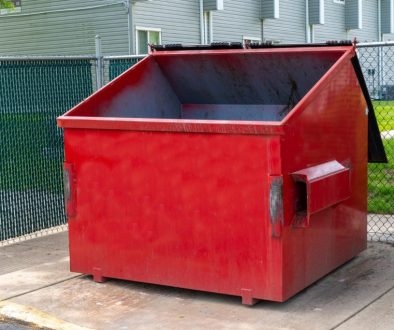Solving Chemical Storage Issues Safely
Chemical storage might seem straightforward, but small errors can lead to big problems. Whether it’s in a garage, workshop, school, or small business unit, chemicals stored the wrong way can cause leaks, risky spills, and even serious health concerns. Sometimes it’s just a poorly marked container that gets used the wrong way. Other times, it’s a mix-up between liquids that should never sit side by side.
In colder months, especially around places like Macclesfield where many storage units aren’t well ventilated, the risk level climbs. Damp air, poor lighting, and overcrowded shelves make chemical organisation more difficult. And when storage gets messy, so does waste. Hiring a skip in Macclesfield can be a practical step for clearing things out before the situation worsens. But before reaching that point, it’s useful to know what typically goes wrong and why these issues are more common than they seem.
Identifying Chemical Storage Problems
Storage issues often creep in unnoticed. One misplaced bottle on the wrong shelf can lead to a growing risk over time. Recognising early warning signs makes it easier to act before problems escalate.
Here are the most common issues seen in chemical storage:
– Poor or missing labels
Unclear or missing labels can make it impossible to identify what’s inside a container. When items look similar, they’re easily confused. Misidentifying chemicals can have dangerous consequences.
– Storing incompatible chemicals together
Some chemicals react badly when they’re near each other. Acids placed beside bases or flammable liquids stored next to oxidising agents can lead to toxic fumes, spills, or even fire if disturbed.
– Using unsuitable containers
Using household bottles or improvised containers like jars with metal lids can be risky. Some chemicals eat through plastic or corrode metal over time, leading to leaks and unexpected fumes.
It’s not always easy to spot a problem until it’s too late. For instance, a business might have a cleaning cupboard where leftover products from different jobs are kept together. One day, a strong bleach ends up beside an acidic descaler. In the rush of a regular workday, they get used at the same time. This leads to a reaction and a small gas release. Something that once seemed harmless has now created a serious risk.
And then there’s the weather. Macclesfield experiences seasonal shifts where plastics can become brittle and split as temperatures drop. This makes it smart to schedule a check each year around September, giving you time to address any issues before winter sets in.
Solutions For Better Chemical Storage
Improved chemical storage is less about sweeping changes and more about smart, consistent habits. When managed well from the start, waste doesn’t pile up beyond control.
A few straightforward solutions can make a big difference:
1. Use clear and durable labels
Choose labels that remain readable over time, even when exposed to damp or frequent handling. Permanent markers, pre-printed tags, or waterproof stickers work well. Always include details like contents, storage date, and handling notes.
2. Store chemicals by type, not just by what shelf has space
Group flammables, acids, bases, and reactive substances in separate sections. This prevents dangerous reactions if something spills or shifts. Think of it like keeping raw food separate in a fridge.
3. Use containers designed for chemicals
Some plastics can be eroded by certain substances, and metal lids may rust. Purpose-made chemical containers with tight seals offer better protection. Always inspect for drips, cracks, and worn-out seals.
4. Keep storage areas dry and shaded
Exposure to direct sunlight or damp corners can speed up wear and damage. Choose a cool, dry place away from outdoor sheds or draughty garages where temperatures shift often, particularly in winter.
5. Avoid overcrowding
Give containers space so they’re easy to access and check. Cluttered shelves not only make storage harder to manage but increase the risk of spills or accidental contact.
By taking these steps, not only do you reduce the likelihood of an incident, but you also make it easier to identify when something has gone off or become dangerous. Regular checks help catch issues early, and with less on the shelves, disposal becomes less of a headache. If there’s an odd smell, a bloated tub, or a mystery leak, that’s a sign to safely remove the item straight away. Once that routine is in place, the whole system just runs more smoothly.
Safe Disposal Of Hazardous Waste
Even with the best organisation, time eventually takes its toll. Chemicals go out of date, get contaminated, or their containers degrade. This is when proper disposal is no longer optional.
In Macclesfield and similar areas, people often discover old tubs, drums, or bottles in storerooms and sheds that shouldn’t be left unattended but also can’t just go in the bin. Incorrect disposal doesn’t just create havoc at a local landfill. It can harm animals, people, or the environment, especially if mixed waste leaks.
If you’re dealing with leftover chemicals, here’s what to do:
Start by identifying what you’re disposing of and isolate each chemical in a safe, sealed, and clearly marked container. Never pour different substances into the same bottle just to save space. Combined chemicals can react badly, even inside closed packaging.
Next, once the items needing disposal are organised, you’ll need a solution for removal. While some councils have options for special waste, their collection windows may not always match up with your needs. That’s where hiring a skip in Macclesfield becomes useful, especially one that can deal with hazardous or mixed waste.
For example, someone might uncover old tins of kerosene after years of DIY, or find jugs of acetone from a workshop clean-up. Tossing those into everyday bins is dangerous. Professional disposal ensures it’s all handled without risk to you, your property, or the environment.
Take note of any nearby materials that might also be affected by past spills or leaks. Absorbent products, rugs, or safety gear stored close to chemicals could also be contaminated. Including these in your disposal plan helps clean up the entire area properly rather than leaving hazards behind.
Practical Tips For Managing Storage Over Time
Safe storage isn’t a one-time fix. Once it’s set up, it needs keeping up. Regular effort prevents stock build-up and reduces the chances of something being forgotten in the back of a cupboard.
Here’s how to stay on top of chemical storage in Macclesfield:
– Schedule recurring checks
Set a calendar reminder every few months to walk through and inspect the area. Look for any signs of damage like leaks, faded labels, or out-of-place containers.
– Keep training quick but consistent
If multiple people access the space, make sure they understand how to handle its contents. A basic talk-through and clear signage usually do the job.
– Stay in touch with safety updates
Every so often, drop in on updates from safety organisations. Packaging rules or recommended disposal methods can change, especially for newer products.
– Keep essential supplies nearby
Things like gloves, eye protection, spill kits, and absorbent materials should be within reach. If a spill happens, quick action stops problems from spreading.
– Watch for seasonal changes
The cold in Macclesfield can make plastics brittle and metal containers sweat. Autumn is a good time to prep, ensuring storage areas stay dry and resilient going into winter.
Taking these steps makes it easier to manage what’s in stock, when it needs replacing, and how to dispose of it safely. Small efforts throughout the year keep things manageable and reduce stress when things start to pile up. Often, the worst risks come from what’s forgotten—left unlabelled, hidden behind newer stock, or stored where no one checks.
Why Smart Storage Matters
Chemical storage tends to go unnoticed until something goes wrong. A few oversights—like a damaged bottle or a missing label—can spiral into bigger problems that are harder and more expensive to fix. Once chemicals can’t be used, it becomes someone’s task to sort out disposal safely and correctly.
With a few basic habits—better labels, safer storage containers, category-based organisation, and a few calendar check-ins—the risk goes down, and maintenance gets a lot easier. And for those moments when it’s time for a large clear-out or items can’t safely stay on-site, services like skip hire in Macclesfield step in to handle the disposal work for you.
Safe chemical storage is about staying prepared and choosing practical solutions. With the right setup, waste stays controlled, safety improves, and everyone using the space benefits.
When you’re ready to address your chemical storage needs effectively, consider a safe and practical solution: hire a skip in Macclesfield with Enviro Skip Hire. Our services ensure your hazardous waste is disposed of responsibly, providing peace of mind and contributing to a safer environment. Find the right skip for your requirements and let us handle the rest, keeping your space clean and compliant.




